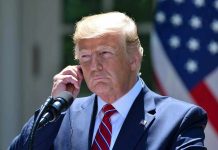
President Trump’s FTC launches landmark antitrust investigation against Media Matters and other left-wing organizations for orchestrating coordinated advertising boycotts designed to financially strangle conservative media outlets and silence right-wing voices.
Key Takeaways
- The Federal Trade Commission under Trump’s administration is investigating approximately a dozen left-wing media and advertising groups for potential antitrust violations related to coordinated boycotts against conservative outlets.
- Media Matters and Ad Fontes Media have confirmed they are targets of the investigation, with the FTC sending Civil Investigative Demand letters requiring them to provide documents and respond to inquiries.
- FTC Chairman Andrew Ferguson is specifically examining whether these organizations illegally colluded with advertisers to boycott conservative platforms like Elon Musk’s X (formerly Twitter).
- The investigation is part of a broader effort involving the FTC, FCC, and DOJ to address what the administration calls a “censorship cartel” targeting conservative viewpoints.
- Conservatives applaud the move as defending free speech, while the targeted organizations claim it represents government overreach and political retaliation.
Trump’s FTC Targets Left-Wing “Censorship Cartel”
The Federal Trade Commission, under President Donald Trump’s leadership, has launched a sweeping investigation into approximately a dozen left-wing media and advertising groups suspected of antitrust violations. The probe centers on allegations that these organizations have engaged in coordinated advertising boycotts specifically targeting conservative media outlets and platforms. FTC Chairman Andrew Ferguson is spearheading the investigation, which aims to determine whether these groups illegally collaborated to pressure advertisers into abandoning conservative platforms, effectively creating a financial stranglehold on right-leaning media voices.
Media Matters for America and Ad Fontes Media are among the prominent organizations that have confirmed receiving Civil Investigative Demand letters from the FTC. These legally binding demands require the organizations to produce documents and respond to detailed inquiries about their business practices and potential coordination with advertisers. The investigation represents one of the most significant regulatory actions taken to protect conservative media from what many on the right view as coordinated efforts to silence their perspectives through economic pressure rather than direct censorship.
“We must prosecute any unlawful collusion between online platforms and confront advertiser boycotts that threaten competition among those platforms,” said FTC Chair Andrew Ferguson.
The X Factor: Musk’s Battle with Media Matters
A central component of the FTC’s investigation involves the ongoing dispute between Elon Musk’s social media platform X and Media Matters. The conflict ignited when Media Matters published research highlighting antisemitic content appearing on X, which subsequently led major brands, including Apple and IBM, to suspend their advertising on the platform. Musk responded by filing a lawsuit against Media Matters, alleging the organization manipulated its research to deliberately misrepresent the user experience on X and damage the platform’s relationships with advertisers. This high-profile battle exemplifies the broader tensions between conservative media platforms and progressive monitoring organizations.
Media Matters has countersued X for breach of contract, characterizing Musk’s legal actions as part of a “vendetta-driven campaign.” The organization has also directly responded to the FTC investigation, issuing a statement that frames the probe as political retaliation. However, conservatives point out that Media Matters’ tactics appear designed specifically to deprive conservative platforms of revenue rather than simply reporting on content, raising legitimate antitrust concerns about coordinated economic action against ideological opponents.
“X’s worldwide campaign of intimidation seeks to punish Media Matters for exercising its core First Amendment rights on a matter of public importance,” stated Media Matters in its lawsuit against X.
Defending Free Speech or Political Retaliation?
The investigation has drawn strong reactions from both supporters and critics. Conservative free speech advocates have praised the FTC’s actions as necessary to prevent what they see as backdoor censorship through economic means. “As the Supreme Court said back in 1945, ‘The Constitution guarantees freedom to publish, but freedom to combine to keep others from publishing is not,'” said Logan Spena, legal counsel at Alliance Defending Freedom, emphasizing the historical precedent for using antitrust law to protect speech rights from coordinated suppression efforts.
“These so-called ‘ratings outfits’ are the left’s latest attempt to silence conservatives,” said Dan Schneider, executive director of the Media Research Center’s Free Speech America.
Meanwhile, the organizations under investigation have vigorously defended their practices and criticized the probe. Media Matters President Angelo Carusone characterized the investigation as politically motivated, stating, “The Trump administration has been defined by naming right-wing media figures to key posts and abusing the power of the federal government to bully political opponents and silence critics.” Ad Fontes Media CEO Vanessa Otero described the FTC’s demands as “excessive” but indicated they would comply with the investigation. The case represents a significant test of where legitimate business practices end and potentially illegal collusion begins when it comes to advertising decisions affecting political speech.




